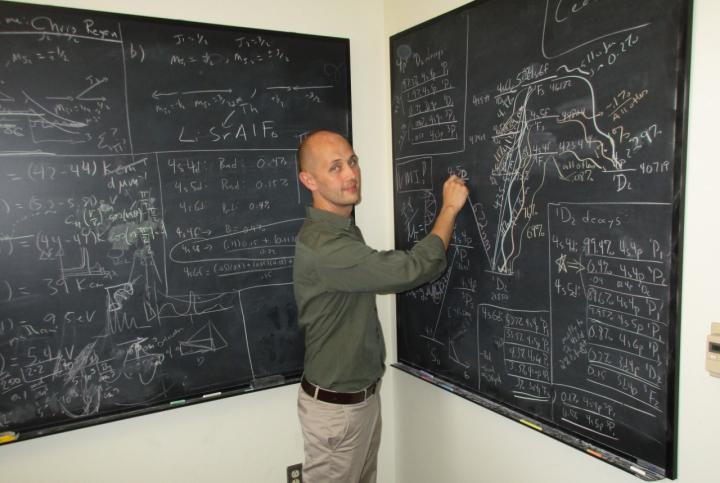
Credit: Stuart Wolpert
A team of researchers at UCLA has set a new record for preparing and measuring the quantum bits, or qubits, inside of a quantum computer without error. The techniques they have developed make it easier to build quantum computers that outperform classical computers for important tasks, including the design of new materials and pharmaceuticals. The research is published in the peer-reviewed, online open-access journal, npj Quantum Information, published by Nature and including the exceptional research on quantum information and quantum computing.
Currently, the most powerful quantum computers are “noisy intermediate-scale quantum” (NISQ) devices and are very sensitive to errors. Error in preparation and measurement of qubits is particularly onerous: for 100 qubits, a 1% measurement error means a NISQ device will produce an incorrect answer about 63% of the time, said senior author Eric Hudson, a UCLA professor of physics and astronomy.
To address this major challenge, Hudson and UCLA colleagues recently developed a new qubit hosted in a laser-cooled, radioactive barium ion. This “goldilocks ion” has nearly ideal properties for realizing ultra-low error rate quantum devices, allowing the UCLA group to achieve a preparation and measurement error rate of about 0.03%, lower than any other quantum technology to date, said co-senior author Wesley Campbell, also a UCLA professor of physics and astronomy.
The development of this exciting new qubit at UCLA should impact almost every area of quantum information science, Hudson said. This radioactive ion has been identified as a promising system in quantum networking, sensing, timing, simulation and computation, and the researchers’ paper paves the way for large-scale NISQ devices.
###
Co-authors are lead author Justin Christensen, a postdoctoral scholar in Hudson’s laboratory, and David Hucul, a former postdoctoral scholar in Hudson and Campbell’s laboratories, who is now a physicist at the U.S. Air Force Research Laboratory.
The research is funded by the U.S. Army Research Office.
Campbell and Hudson are primary investigators of a major $2.7 million U.S. Department of Energy Quantum Information Science Research project to lay the foundation for the next generation of computing and information processing, as well as many other innovative technologies.
Media Contact
Stuart Wolpert
[email protected]
Original Source
https:/




